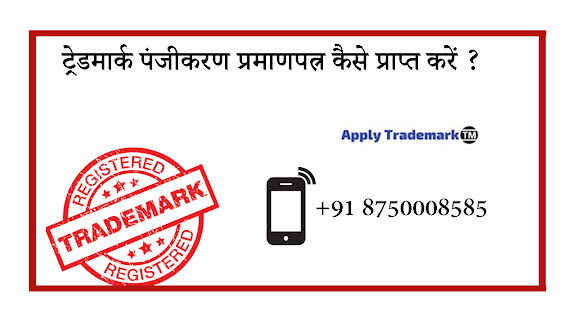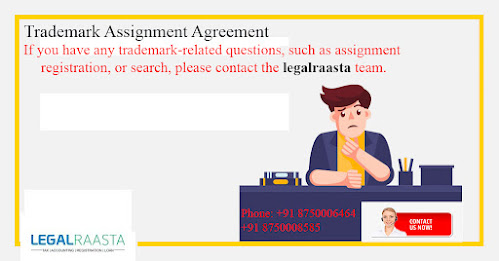What is the process of online registration of a company?
It is not
challenging to follow the steps for incorporating a business. You must,
however, be aware of every stage and supply precise information. If you follow
these steps, incorporation should go smoothly, and your business will be
operational in no time. This article aims to clear up all of your questions
regarding how to establish a business in India, including what types of
companies can be registered there, what the eligibility requirements are, and
how to create a company online. To help you get started right away, it will go
above and above by outlining the procedure in the most straightforward way
imaginable. A prominent provider of CompanyIncorporation Services in India, Legalraasta
has an experienced staff of qualified specialists who can assist you with
the procedure.
There are several forms of online company registrations:
Ø One Person Company (OPC): This type of Private Limited Company
has just one director who is in charge of conducting and supervising all
business operations.
Ø Private Limited Corporation (PLC): This is a type of private limited
company having two or more shareholders and a minimum of two directors.
Directors may be shareholders or be in charge of daily managerial tasks, with
shareholders making the important business decisions.
Ø Limited Liability Partnership (LLP): This structure combines the PLC and
partnership structures, and it requires at least two authorized partners. The
Partners in an LLP have their own unique legal entities.
Ø Sole Proprietorship: Those who want to work entirely on
their business without interference from any other entity or person should form
a sole proprietorship.
Ø Partnership: Without a separate legal firm
entity, a partnership consists of two or more people who work together to make
all of the important business decisions.
Process of Registration online registration of a company
Companies
are registered with the Registrar of Companies (ROC), and in order to complete
the registration process on your behalf, you will need the assistance of a
practising professional. To ensure that the process goes successfully, it would
be your responsibility to give them the precise information and necessary
documents as soon as possible. Briefly describing them below, it consists of a
4-step process that takes about 10–12 working days.
1. Digital Signature Certificate (DSC): Throughout the registration
procedure, DSC is used to securely send electronic documents. Therefore, it is
necessary for all directors and stockholders to acquire DSC. The Controller of
Certification Agencies (CCA) can provide it.
2. Name Reservation (SPICE+ Part A): We now fill out the SPICE+ Part A
form, which essentially assists you in registering the company name of your
choice. You may first suggest two distinct names. The MCA is approved in two to
three days. If your first two name submissions aren't accepted, you have
another chance to offer two further names. Make sure the company names you
select are distinctive and describe the work the company does and its guiding
principles.
3. Details of the Proposed Company
(SPICe+ Part B): The
SPICE+ form's Part B must then be completed with the company's information
listed below, including:
o
Information
on Shareholders and Directors, Registered Office Address, and
o
Stamp
Duty, whose calculation is based on authorised capital and varies from state to
state.
o
PAN
and TAN and providing a declaration signed by the director and practising
professionals.
4. SPICE+ MOA (Memorandum of
Association): The
SPICE+ MOA (Memorandum of Association) is composed of five sections, including
the firm name, registered address, the primary goal of the organisation,
liability, share capital, and subscribers declaration. The SPICe+ AOA (Articles
of Association) describes the company's name, legal address, equity capital,
and managerial and financial decisions. When submitting their work for MCA
approval, practising professionals must include both their own DSC and those of
the Directors. These are referred to as a company's charter documents. These
have been created by the working specialists who are assisting you with company
registration.
5. Agile Pros: As your company registration procedure draws to a close, the Agile Pros
form provides you with a GST registration number, credentials for the Employees
Provident Fund Organization, and ESIC (Employee State Insurance Corporation).
This form also offers a list of banks from which you can select one to open a
current account and, if necessary, register a shop or establishment.
6. Form INC-9: Once the aforementioned forms have
been submitted, Form INC-9, an auto-generated form, must be submitted. A
statement from the board of directors and shareholders.
7. Certificate of Incorporation (COI): The MCA issues this document. Once
you have it, it is official proof that the MCA was used to lawfully incorporate
your business. Along with the registered address of the PLC, it includes the
date of incorporation, Company Identification Number (CIN), PAN, and TAN. A DIN
number is given to the Directors.
Eligibility requirements
Ø A minimum of two directors, one of
whom must be an Indian national who has resided continuously in India for at
least a year.
Ø There must be a minimum of two
shareholders for an entity to qualify as a shareholder. The shareholders may
also be the directors.
Ø The company's registered office
address must be in India.
Documents required for online registration of a company
Ø A self-attested copy of each
director's and shareholder's PAN (Permanent Account Number) and Aadhaar Card.
Ø A photo the size of a passport.
Ø A self-attested copy of your driver's
licence, passport, or voter ID as identification.
Ø A self-attested copy of a recent bank
account passbook that includes the name and address of the account holder as
well as a list of recent transactions.
Ø All of these documents, with the
exception of those issued by the Indian government, must be mandatorily
notarized and apostilled in the case of foreign nationals.
Ø A copy of the lease agreement in the
case of rental property.
Ø For both rented and owned properties,
a No Objection Certificate (NOC) from the owner.
Conclusion
The sort of
business structure you want to incorporate must first be determined. It will
govern the regulations you must abide by, the rules you can establish, your
business practices, and the legal requirements you must meet. To register your
business, you will require the assistance of a working professional. Knowing
the procedure inside and out will just make the whole process easier for you.As
a result, we are offering information on how to incorporate a business, prepare
and register contracts, agreements, and memorandums of association, partnership
deeds, and other documents in accordance with the Companies Act of 2013. So if
you intend to establish a business and want to learn how to register your
company, you should check out Legalraasta. You won't need to conduct any
further research because the procedure largely stays the same throughout India.
Contact a Legalraasta expert right away!



.jpg)
Comments
Post a Comment